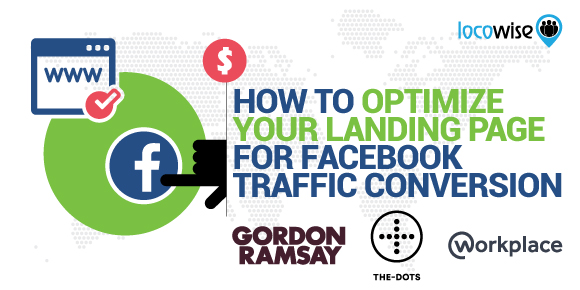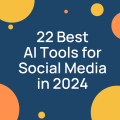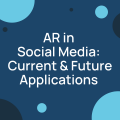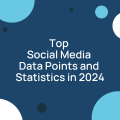Can AI In Social Media Affect Our Marketing Decisions?
Ivan Ivanov posted on 16 January 2018
Two decades ago, Artificial Intelligence was a major topic in the world of Sci-Fi. Primarily driven by big blockbusters, such as The Terminator and The Matrix, the idea of computational power becoming sufficient enough to simulate the human brain has been around since the 1940s.
Yet, philosophers have theorized the possibility of how the human mind can be explained through mathematics and symbols much earlier. Nevertheless, in 2018, our societal definition of the term has been tweaked.
Without getting in the AI argument between Elon Musk and Mark Zuckerberg, about the potential dangers of such technology, we can nonetheless theorize about its role in marketing in the next few upcoming years. Based on its prevailing significance today in the online tools we use constantly, making the assumption that AI will change social media marketing with a swing is not too far off.
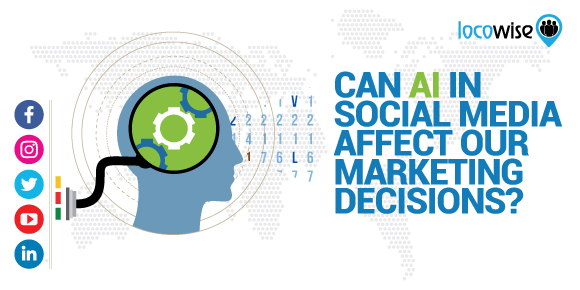
Current Algorithmic Analysis Used on Facebook, Instagram and Twitter
Whether not to reveal company secrets or just to avoid a major media backlash, social media platform execs rarely touch on the matter of how AI is being used in algorithmic analysis. In fact, the closest we’ve ever come to a behind-the-scenes look is Alphabet’s explanation of how the YouTube algorithms work (or lack thereof) after last year’s YouTube Ad Boycott.
A machine learning algorithm is often bound by a few simple rules that define a given task. Often implemented through a convolutional network via multiple iterations, an AI program basically teaches itself how to be better at the performance of a certain task. This is easiest to explain via the use of AI in image recognition.
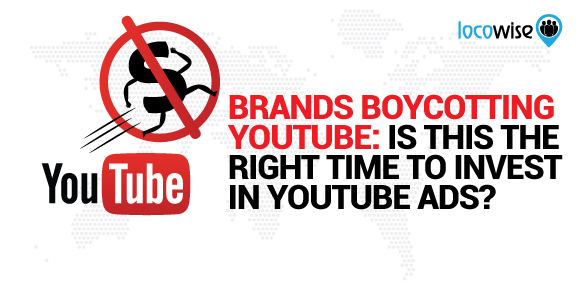
For example, if you give a bot 10,000 photos of cars and tell them that this is a car, the bot will find the similarities, based on the data (in this case, pixels) and teach itself what a car looks like. When given a new photo that the bot hasn’t seen before, it will be able to tell whether this is a car or not.
Of course, this is a huge simplification, but it allows us to understand the basic concept of what an AI is. An artificial neural network that finds its own meaning of how the similarities in the data represent something real is what most social media platforms use to advance their algorithms.
In the most basic sense, an AI algorithm can be given the task to find and pursue the most engaging posts on a network and proceed to use its own strategy to present people with posts, the bot believes will be most engaging for that particular individual.
Personification via Big Data Analytics
What current AI technology allows social media networks to do is to become a personified version of the customer. In a sense, if you are an automobile junkie, the Facebook AI that analyzes your data will fill up your news feed with automobile-junkie related posts. If you ever felt an eerie feeling that social media knows you far better than you know yourself, this might very well be the case.
The way this can affect your marketing decisions is via core audience targeting. Humanizing a brand is a step in the right direction and inbound marketing is on the rise for a reason.
Nevertheless, to truly grasp the opportunities that come with AI social media algorithms is via personified targeting. The first step is to focus on what an individual in your target audience group is interested in. That way, if your content hits just the right notes, you’ll be able to increase your chances of appearing in the right person’s news feed. The second thought on your mind should be how to convert that impression into engagement.
What you can do as a digital marketing expert to use AI in social media to your advantage is to invest in target audience research. Realizing the potential of a personified marketing campaign can skyrocket the conversion for your client.
Microtargeting Through Global Strategizing and Going Future-Proof
In a sense, social media today requires a balance of microtargeting and global strategizing.To achieve the best results, you must first focus on the individual level. This will help you grasp the true potential of AI algorithms.
Nevertheless, you must remember that you are representing a business with a clear marketing message. Consider Adidas posting #Gains memes on their Facebook page. Yes, they might hit their target audience on a microtargeting level and it might even increase their engagement. But they don’t want to be the next meme-based “bro” page. Instead, they want to retain the professionalism of their existing sports brand.
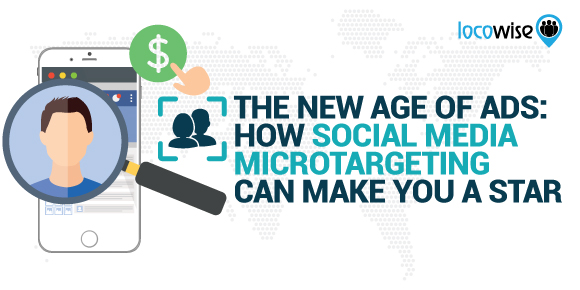
In a recent post, we’ve outlined more than a few tips on how you can future-proof your social media marketing strategy. And for the most part, we believe that we’ve outlined the most probable situations that will help you advance your brands on social media in the next few years. Nevertheless, if you truly want to go future-proof, re-considering AI is definitely one of the first priorities that should be on your mind.
The best way to do so is to be prepared in advance. In a sense, to understand AI, you must use algorithms to your advantage. The data never lies. Thus, use analytics and implement a review and adapt process within your social media marketing strategy. Don’t neglect the smallest of trend changes in the data based on the tweaks in your content and make sure to experiment with a few posts to try out different increase in natural reach strategies.
Pushing for a personified brand based on microtargeting within your audience in combination with global brand reach marketing strategy can help you avoid having issues with AI algorithms in the future. Yet, a constant review-and-adapt process based on analytics is a must if you want to achieve future success.

Advances in AI Technology that Can Affect Daily Life
The media often reports of silly AI incidents. Remember the Microsoft Twitter Bot? And you’ve probably already heard about the Facebook AI chatbots that created their own language.
Nevertheless, reports on advances in the field are not exactly a common occurrence. The primary reason for this is that if there’s a major breakthrough, we’d probably have our answer of whether or not AI is apocalyptic as predicted by Elon Musk, or not.
But that doesn’t mean that there isn’t innovation in the current machine learning algorithms that have a major impact on our daily lives.
DeepMind, AlphaGo Zero and How Online (and Social Media) Ads will No Longer Be The Same
One of the biggest news stories in recent AI has been AlphaGo’s triumph over the world’s Go champion. Nevertheless, an innovation that slipped through most media outlets was DeepMind’s newest AlphaGo family member, under the name of AlphaGo Zero.
Without going into too much detail about why the innovation is a step in the right direction for AI, AlphaGo Zero is an iteration of the AlphaGo algorithm that managed to teach itself to play go only by playing against itself. In a sense, without any prior knowledge.
While this is a far-off assumption and we’re not yet there, the AlphaGo Zero algorithm gives way to AI that would be able to teach itself what a car is, without having to go through 10,000 images of a car first.
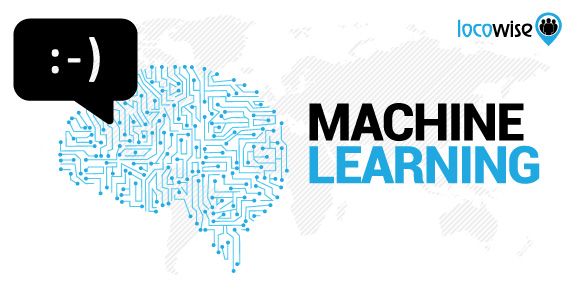
Considering the possible implications of the technology in online advertising, it’s easy to see how the digital marketing media landscape can be transformed in the potential future. Imagine for a second, an AI tool within a social media platform that is able to go through your posts and tell you which one is best to promote, based on your target audience? In a sense this is already happening, but with AI the results will be even better. What about a bot that can write and create image posts for your brand on its own?
Artificial Intelligence Doesn’t Mean the End of Social Media Marketing
Artificial Intelligence doesn’t mean the end of social media marketing. Even in 10 years time, when the AI bots will potentially be creating all the content by themselves and operating all of your social media profiles, increasing your conversions like no other human would, social media marketing will probably still be a thing.
Of course, by then the definition will have probably changed. Yet, at least in the near future, a human presence would be required to operate the bots and make sure that there are no potential hiccups.
For now, avoiding grim scenarios in which your digital media marketing agency business is overrun by AI bots, what you can do is use AI to your best advantage. Use the data, analyze your audience, target both on the individual and group levels and make sure that your clients are satisfied with your work.
